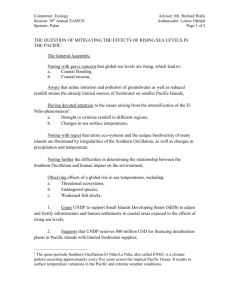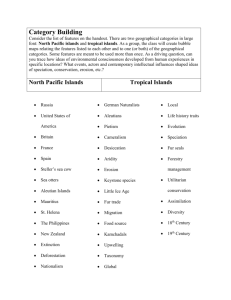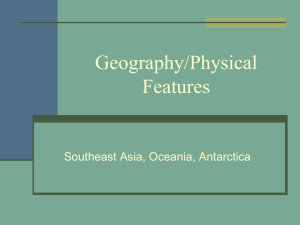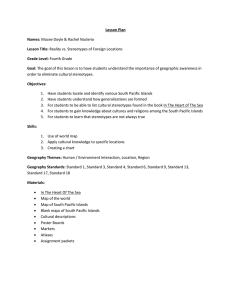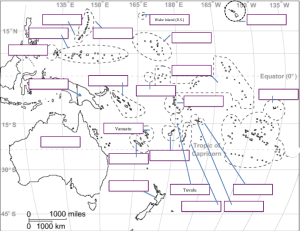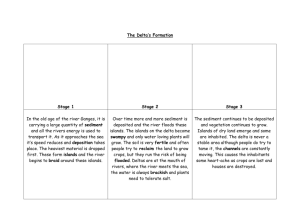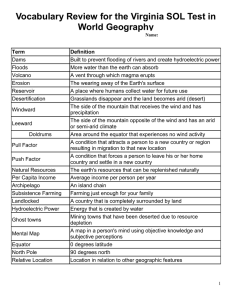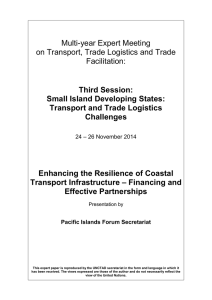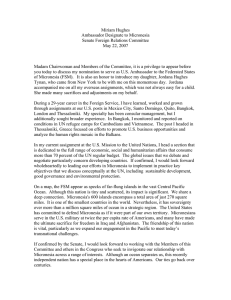The Pacific Islands Climate Change Education Partnership (PCEP)
advertisement
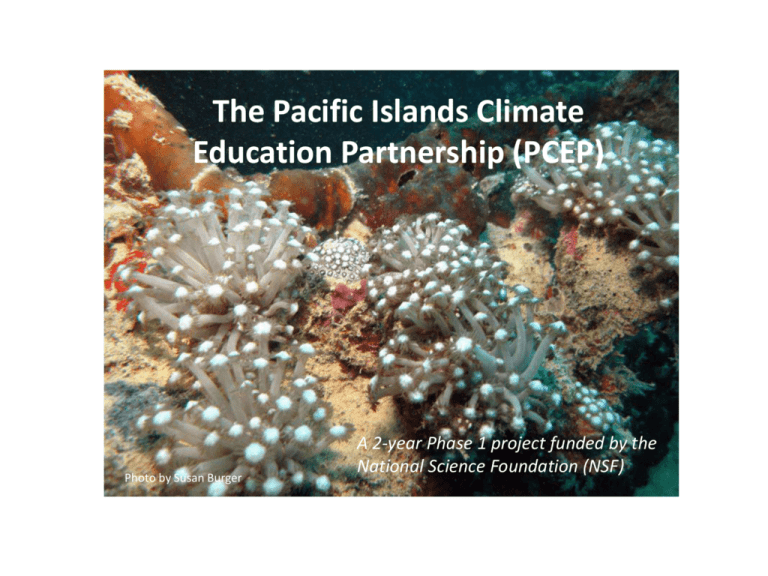
The Pacific Islands Climate Education Partnership (PCEP) Photo by Susan Burger A 2-year Phase 1 project funded by the National Science Foundation (NSF) PCEP is a collaboration between PREL and WestEd Co-Principle Investigators: Dr. Sharon Nelson-Barber and Dr. Art Sussman Theclimate PCEP serves the U.S. Pacific Islands (USAPI). The PCEP vision isinto educate the region’s students andAffiliated citizens ways that exemplify modern science and indigenous environmental knowledge, address the urgency of change impacts, and honor indigenous cultures. Key Features • Develop a regional K-14 climate education framework and plan its implementation: what gets taught, when, how, where, for/by whom • Focus on climate change impacts on region’s islands and communities • Involve local communities with a focus on indigenous knowledge • Collaborate with other CCE Partnerships Key Outcomes • A plan for the culturally responsive adoption and implementation of a multidisciplinary K-14 climate education framework across the USAPI • A collection of curriculum resources and instructional strategies for the Pacific region’s climates and cultures • A web-based information platform that enables development and implementation of the region’s climate education plan Core Partners • Climate scientists – Drs. Julian Sachs, Art Sussman, Phil Duffy • Learning scientists – Drs. Bruce Sherin, Megan Bang, Sharon NelsonBarber, Ursula Sexton • Practitioners (K-12) – the Pacific Curriculum and Instruction Council (PCIC members) coordinated by Drs. Hilda Heine and Marylin Low Examples of Supporting Partners • Local community organizations – Commission on Education in Micronesia – Women United Together in the Marshall Islands – Micronesian Challenge – Pacific Island Health Officers Association – Conservation Society of Palau • Local community colleges – Guam Community College – American Samoa Community College Advisory Board • Dr. Phil Duffy, Principal Research Scientist and Data Lead, Climate Central • Dr. Richard A. Duschl, Chair Secondary Education, Penn State College of Education • Dr. Shirley Brice Heath, Professor of English and Dramatic Literature, Stanford University • Dr. Doug Herman, Senior Geographer, National Museum of the American Indian • Dr. Igor Krupnik, Arctic Studies Center, Smithsonian National Museum of Natural History • Ms. Marie Maddison, Director, National Training Councils, Republic of the Marshall Islands • Dr. Douglas Medin, Professor of Cognitive Psychology, Northwestern University • Dr. Elizabeth Rechebei, Commission on Education in Micronesia, Commonwealth of Northern Mariana Islands • Dr. Don Rubinstein, Professor of Anthropology, University of Guam Highlights for CLN 5/17/11 • FIRST DRAFT of partnership web environment will be introduced and shared – Links regional locations, organizations, people – Interlinks the above with climate science content, climate impacts content, learning science content, and regional communities/cultures – Designed to support collaborative development of regional strategic education plan – Current status, accomplishments, challenges, plans – Next steps to populate, make more user friendly, relate Indigenous and Western ways of knowing and being • Organization of climate science content and climate impact content will be introduced/shared

